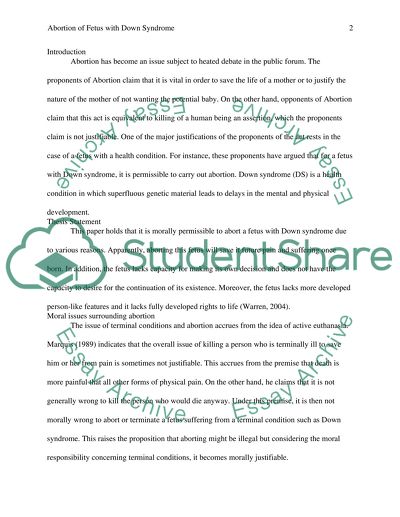Cite this document
(“Abortion of Fetus with Down Syndrome Essay Example | Topics and Well Written Essays - 1000 words”, n.d.)
Retrieved from https://studentshare.org/philosophy/1427681-do-you-think-it-is-morally-permissable-to-get-an
Retrieved from https://studentshare.org/philosophy/1427681-do-you-think-it-is-morally-permissable-to-get-an
(Abortion of Fetus With Down Syndrome Essay Example | Topics and Well Written Essays - 1000 Words)
https://studentshare.org/philosophy/1427681-do-you-think-it-is-morally-permissable-to-get-an.
https://studentshare.org/philosophy/1427681-do-you-think-it-is-morally-permissable-to-get-an.
“Abortion of Fetus With Down Syndrome Essay Example | Topics and Well Written Essays - 1000 Words”, n.d. https://studentshare.org/philosophy/1427681-do-you-think-it-is-morally-permissable-to-get-an.


